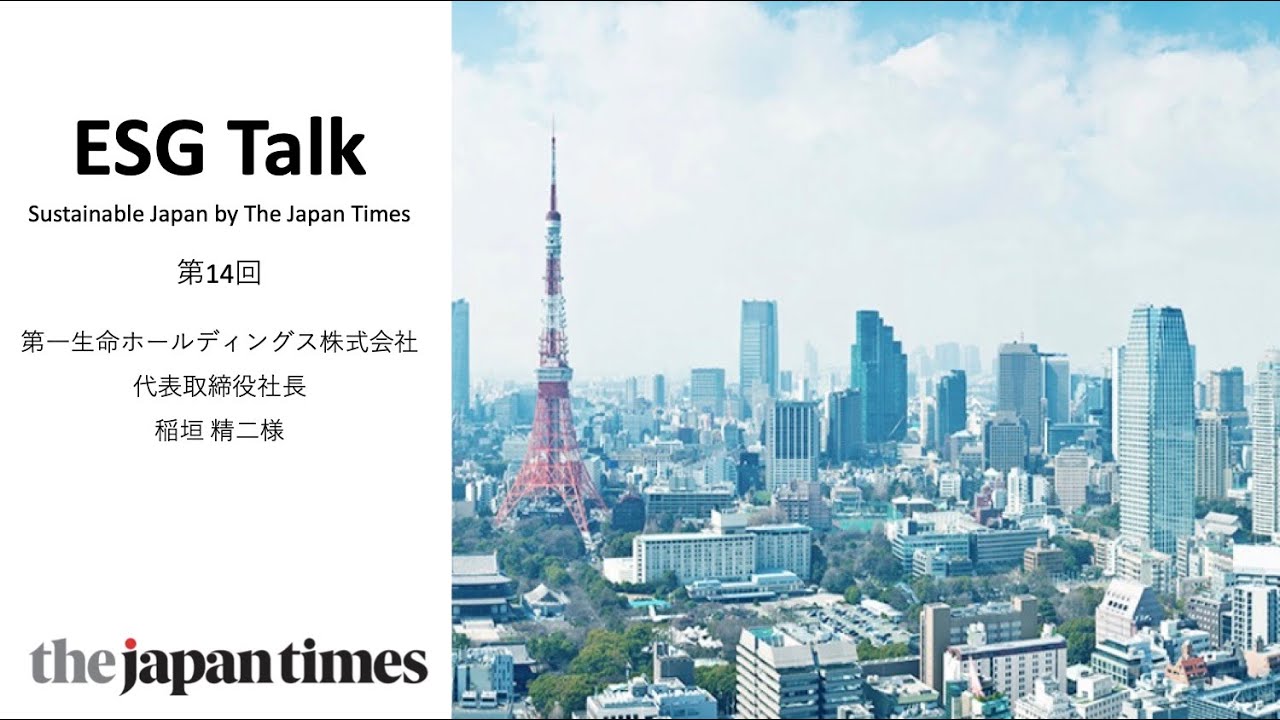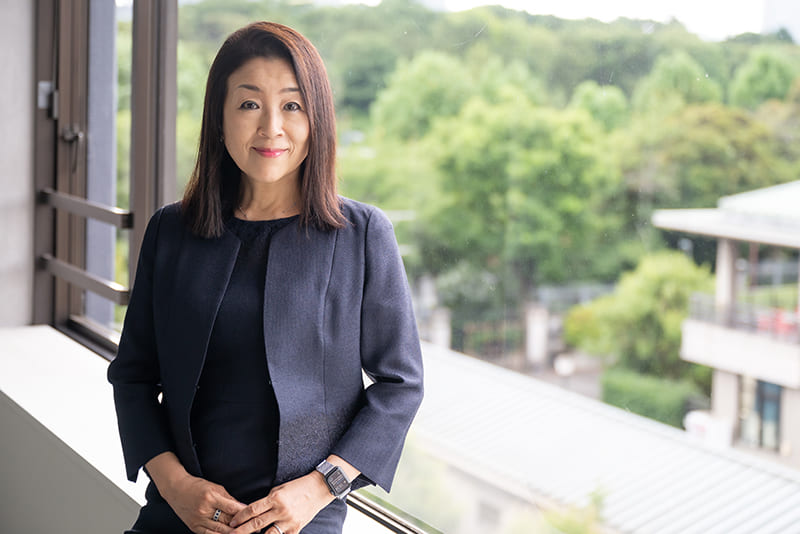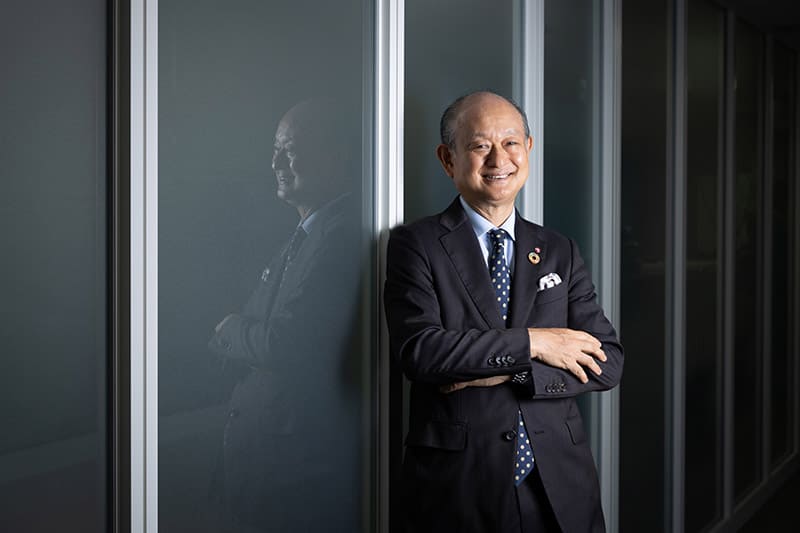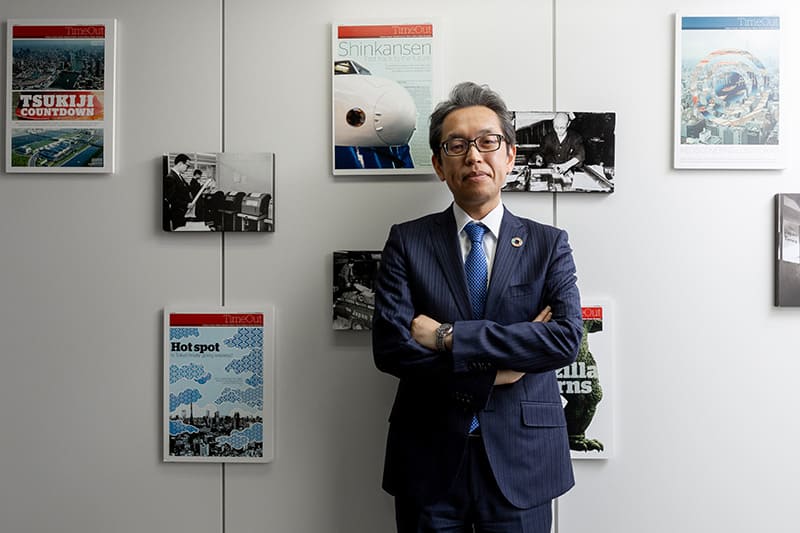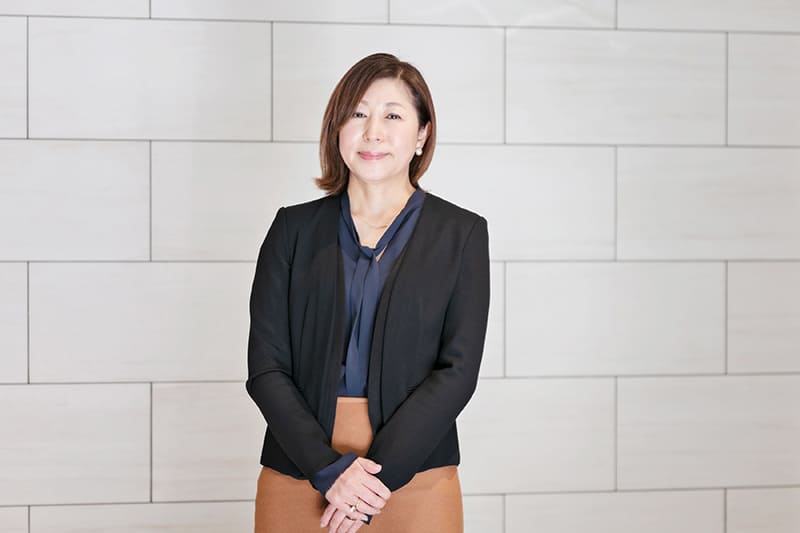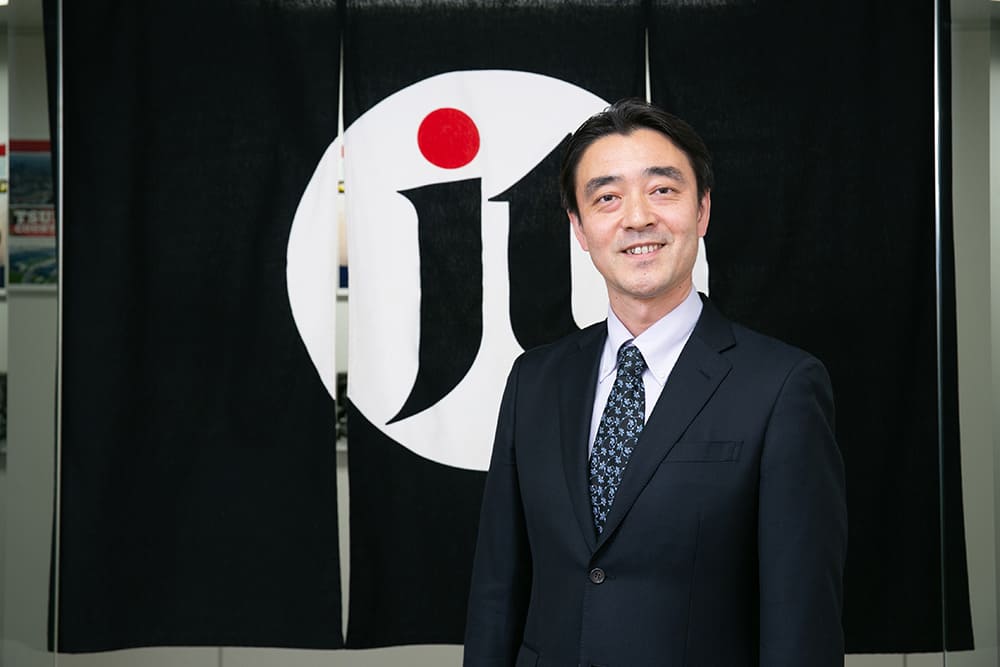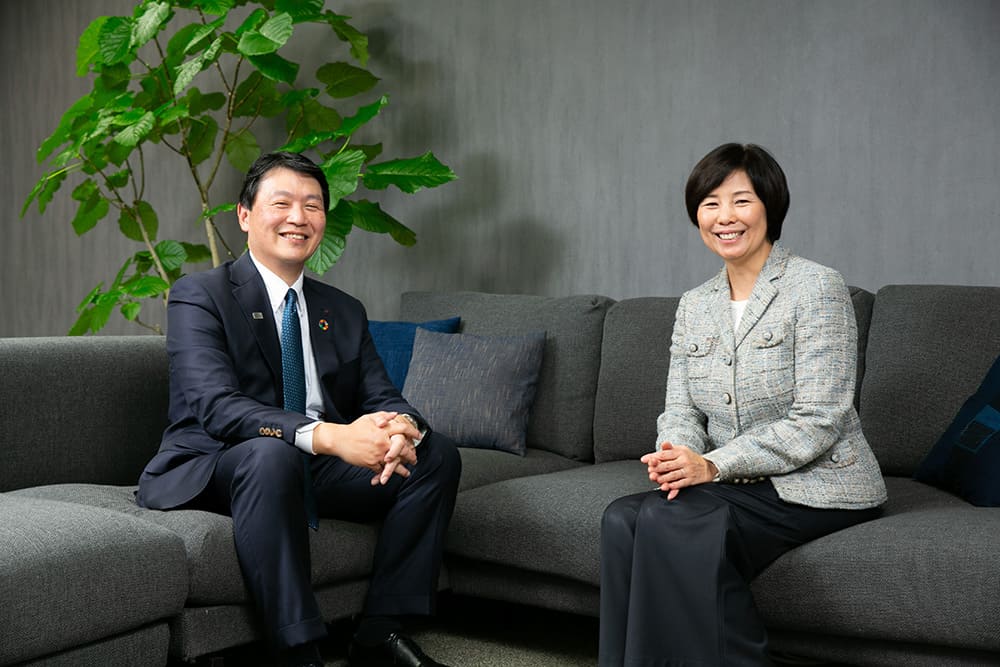February 18, 2022
Dai-ichi Life Insurance supports corporate ESG activity
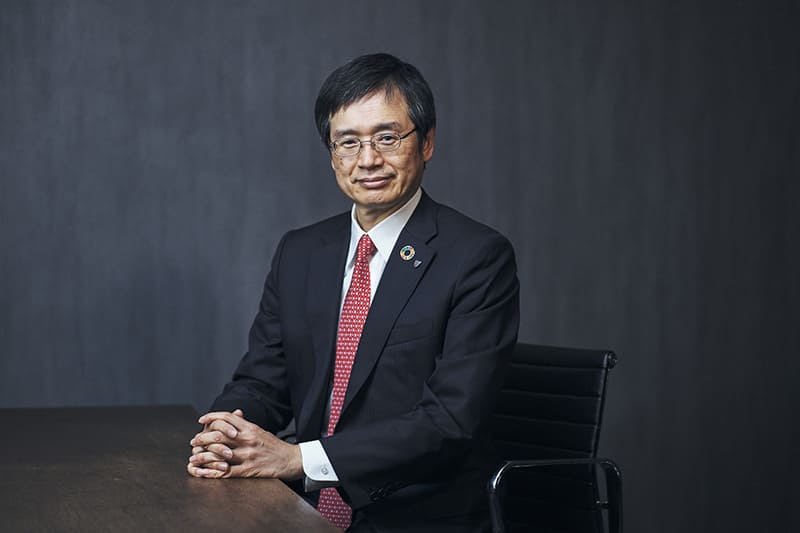
The Dai-ichi Life Insurance group this year marked the 120th anniversary of its foundation. The group began as Dai-ichi Mutual Life Insurance Co., Japan’s first mutual life insurance company, which is now the Dai-ichi Life Insurance Co., the core company. Today the Dai-ichi Life Insurance group, with assets totaling ¥63 trillion ($550 billion), is one of Japan’s leading institutional investors, and positions ESG (environmental, social and governance) investing as a key pillar of its asset management.
Asked what the key was for the group’s survival for more than a century, Seiji Inagaki, who concurrently serves as president of Dai-ichi Life Holdings Inc. and the Dai-ichi Life Insurance Co., quoted the group’s founder: “Consider whether people will be pleased with what we do or find it unnecessary. Business is what we do for the sake of people.”
Dai-ichi Life Insurance “is a company the founder created to provide households with stability of living,” Inagaki said. “Ways of asset management have changed in response to changing needs, but the company has kept asking if it is doing what it’s expected to do as an asset owner and if it is making people happy.”
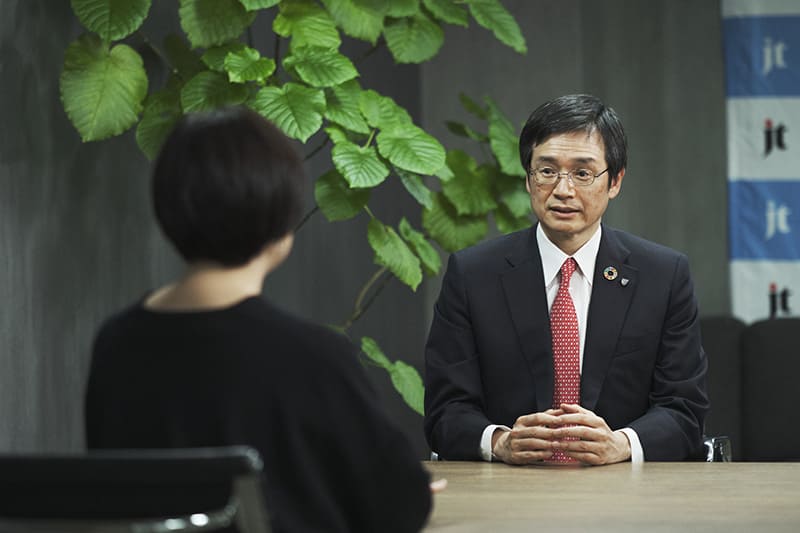
There are wide-ranging social issues, but the group gives particular priority to measures to address climate change. In 2020, the Japanese government pledged to make Japan carbon neutral by 2050, which put the country on a path to decarbonization.
The Dai-ichi Life Insurance group is both an operating company and an institutional investor. As an operating company, it announced it will switch all power sources at the Dai-ichi Life Insurance Co.’s 1,300 offices in Japan to entirely renewable sources by the end of 2024. As an institutional investor, the group joined the Net-Zero Asset Owner Alliance, an international initiative in which members seek to make their portfolios carbon neutral by 2050, becoming the first Asian member of the alliance. The group is committed to an interim target of reducing by 2025 greenhouse gas emissions of its portfolios of listed stocks, publicly offered corporate bonds and real estate properties by 25% from the level at the end of March 2020. As cooperation of investee companies is essential for the achievement of this target, the group supports their initiatives and efforts to transform behaviors by stepping up dialogue to encourage their decarbonization efforts and offering transitional finance in which financial assistance is provided to encourage technological innovation and infrastructure investment.
“The biggest challenge for Japanese businesses is to find ways to change the existing business models,” Inagaki said. “Japan has the level of technology that can enable adjustments necessary for achieving carbon neutral. I want companies to have the courage to face the challenge. Financial institutions, including us, are here to cheer them and support them.”
The Dai-ichi Life Insurance group was early to begin efforts to ensure diversity in workplaces. Soon after the war, it began to increase hiring of women, who currently represent over 90 percent of its employees. Women have come to represent over 30% of those targeted for positions at the level of section chief, but their representation remains far smaller at the levels of general manager or higher. The group thus aims to raise the ratios of women to 30% in positions of a department or section heads by April 2024 and 30% of the executive officers by 2030. “You need role models if you want to promote more women,” Inagaki said. “We now have more female executives with excellent skills, so I think we can achieve the targets. As half our customers are women, we have some apprehensions about the risk that we may not be tolerated if we don’t have diversity in our management team.”
The The Dai-ichi Life Insurance Co.’s basic policy for ESG investing has three key goals. The first is to build asset portfolios that can both generate investment returns and help solve social issues. This calls for taking ESG factors into account in policies and processes for managing all assets and ensuring that investment decisions take such factors as climate change risk into consideration. The second is to practice investing and lending that can help solve social issues. Improving quality of life, mitigating impacts of climate change and revitalizing regional economies and local communities are priority areas selected for this goal. ESG-themed investments totaled about ¥940 billion, including ¥360 billion in SDG bonds, by the end of August 2021, with the largest portion, about ¥390 billion, invested in solutions to problems related to climate change. The group aims to increase the cumulative total of investments to above ¥1.1 trillion by the end of March 2024.
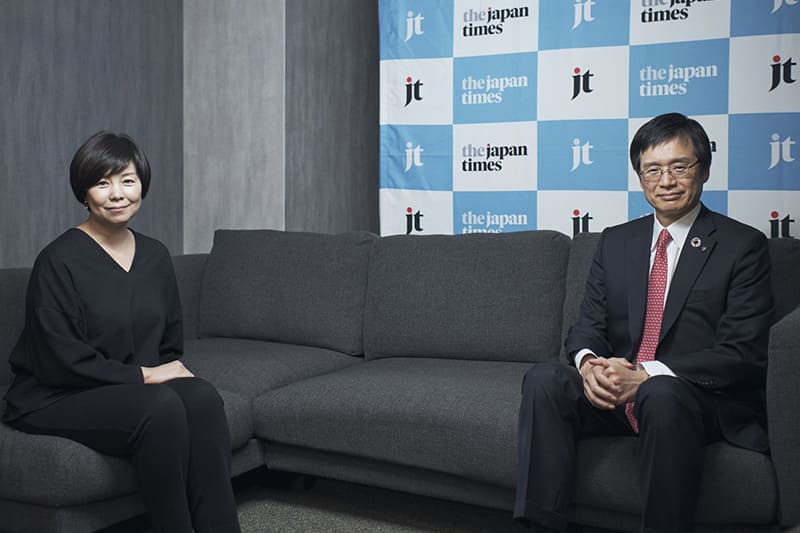
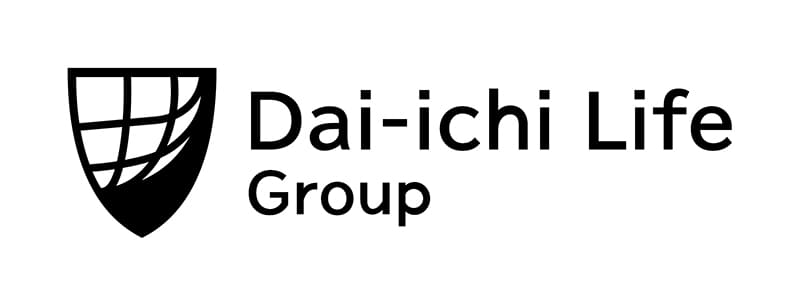
The third is to carry out stewardship activity aimed at encouraging investees to engage in ESG efforts. For this goal, the group aims to provide information and offer solutions according to given ESG issues, encourage disclosure of information related to climate change and participate in collaborative engagement groups and initiatives in Japan and overseas. Inagaki said the environment for information disclosure has improved from a decade ago, thanks in part to the progress in efforts to create international rules.
A particular characteristic of a life insurer as an institutional investor is that it can make long-term investments. Life insurers tend to have long asset management periods, as the periods from the receipt of premium until the payment of insurance money average about two decades. They can, for example, think about and support returns from a long-term perspective without having to bother about short-term numbers, even for issues that are difficult for Japanese companies to tackle, such as energy transition, according to Inagaki.
Dai-ichi Life Holdings is a member of the Glasgow Financial Alliance for Net Zero, an initiative under which over 160 financial institutions from different countries aim to achieve net zero emissions for their investment portfolios, and Inagaki became the first Asian to be added to the 20 leaders comprising the Principals Group, which leads the overall management of GFANZ. He volunteered to serve as a principal because he has a sense of crisis about the current situation, in which the work to design climate change countermeasures and information disclosure rules is led by Europeans and Americans. “We Japanese have the responsibility to represent Asians and express views of Asians,” Inagaki said. In order to smoothly shift business models that were effective during the period of rapid economic growth into ones suitable for a carbon neutral world, Inagaki believes, it is essential for each country to have a framework tailored to the situation specific to it so that such side effects as wealth gaps, energy price rises and job losses can be avoided. “It is important for Japan to show the flag. We will actively step onto the international stage” as a Japanese asset owner, Inagaki said.

